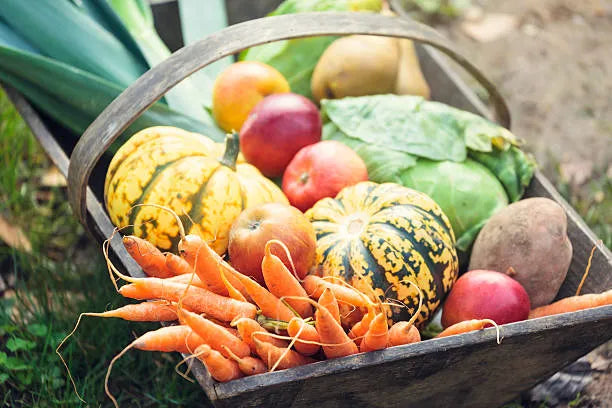
Why Eating Seasonal Foods is Better for Your Health
Share
I’ve always believed that the best way to nourish our bodies is to align our diets with nature’s rhythm. Eating seasonal foods isn’t just a trend—it’s a time-tested way to enjoy fresher, tastier, and more nutritious meals.
Maximum Nutrition and Flavor
Seasonal fruits and vegetables are harvested at their peak ripeness, meaning they’re richer in vitamins, minerals, and antioxidants. When produce is allowed to fully mature before being picked, it develops more nutrients and a deeper flavor. Have you ever noticed how a summer tomato tastes worlds better than one in the middle of winter? That’s the power of seasonal eating.
Supports Your Body’s Needs
Nature provides exactly what we need at the right time. In the winter, root vegetables like carrots and sweet potatoes offer warmth and energy. In the summer, hydrating fruits like watermelon and berries help keep us cool. Eating seasonally means we’re naturally supporting our bodies through the changing seasons.
Fewer Chemicals and Preservatives
Out-of-season produce often travels long distances and is treated with preservatives to maintain its shelf life. Locally sourced, seasonal foods are typically grown with fewer chemicals, meaning you’re consuming cleaner, more wholesome food.
Environmentally Friendly and Budget-Friendly
Seasonal foods don’t require extensive storage or transport, reducing their carbon footprint. Plus, they’re often more affordable because they’re in abundance—making seasonal eating a win for both your wallet and the planet.
A Simple Step for Better Health
Making the switch to seasonal eating doesn’t have to be complicated. Visit your local farmers’ market, check out what’s fresh in your grocery store, and embrace the variety that each season offers. Your body—and your taste buds—will thank you!
What’s your favorite seasonal ingredient right now? I’d love to hear your thoughts.
Get more knowledge about eating healthy, please refer to The Mediterranean Diet for Beginners.
